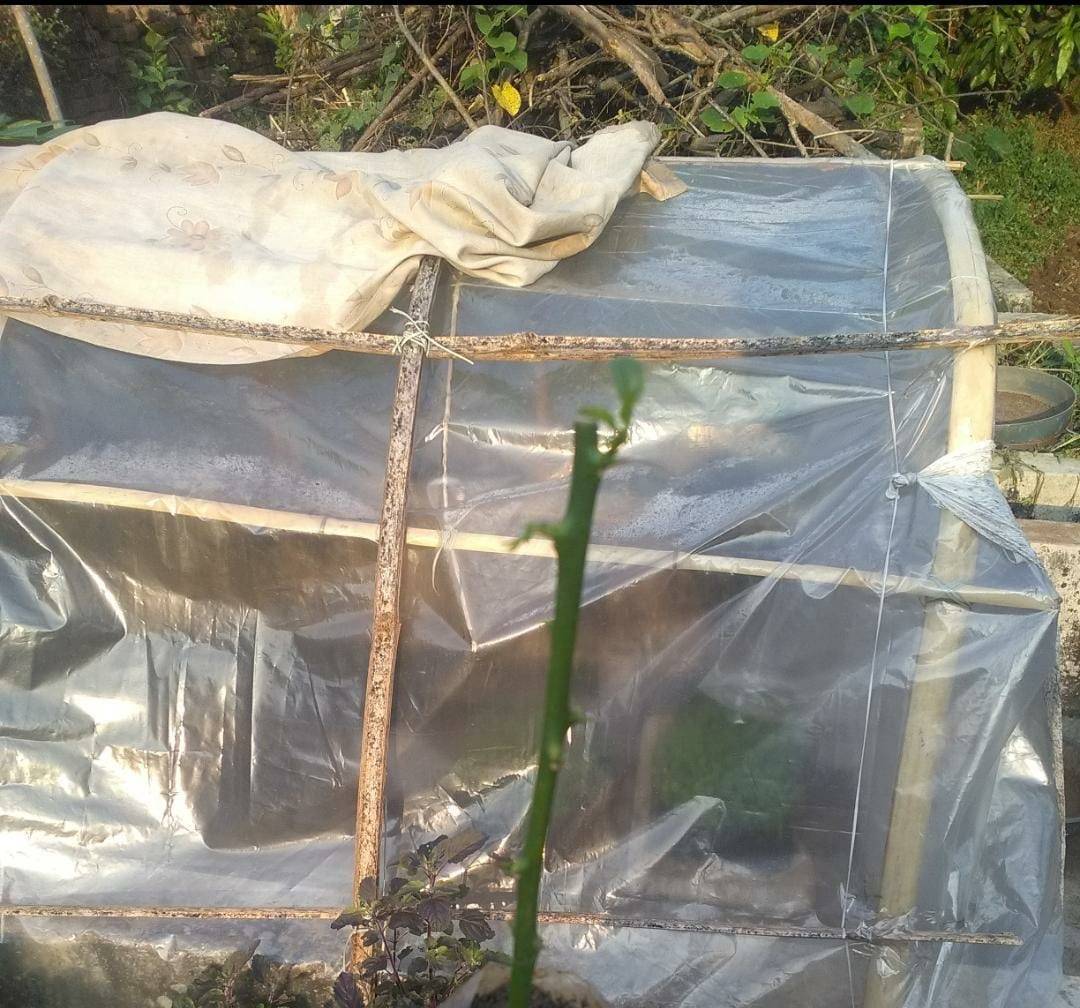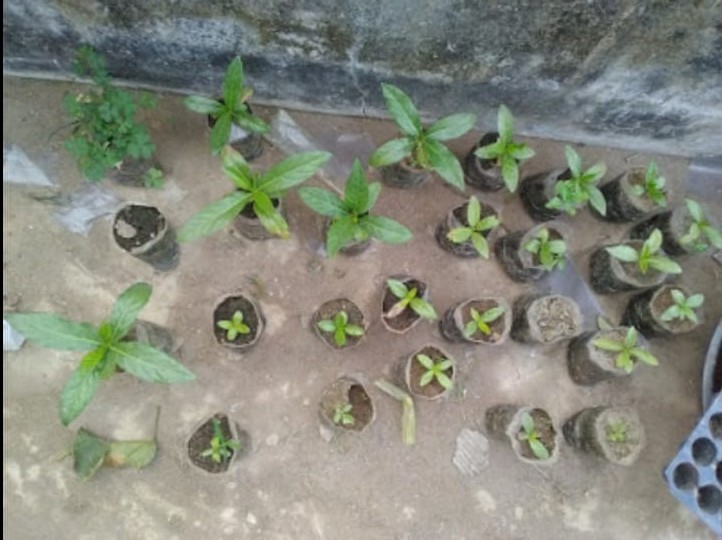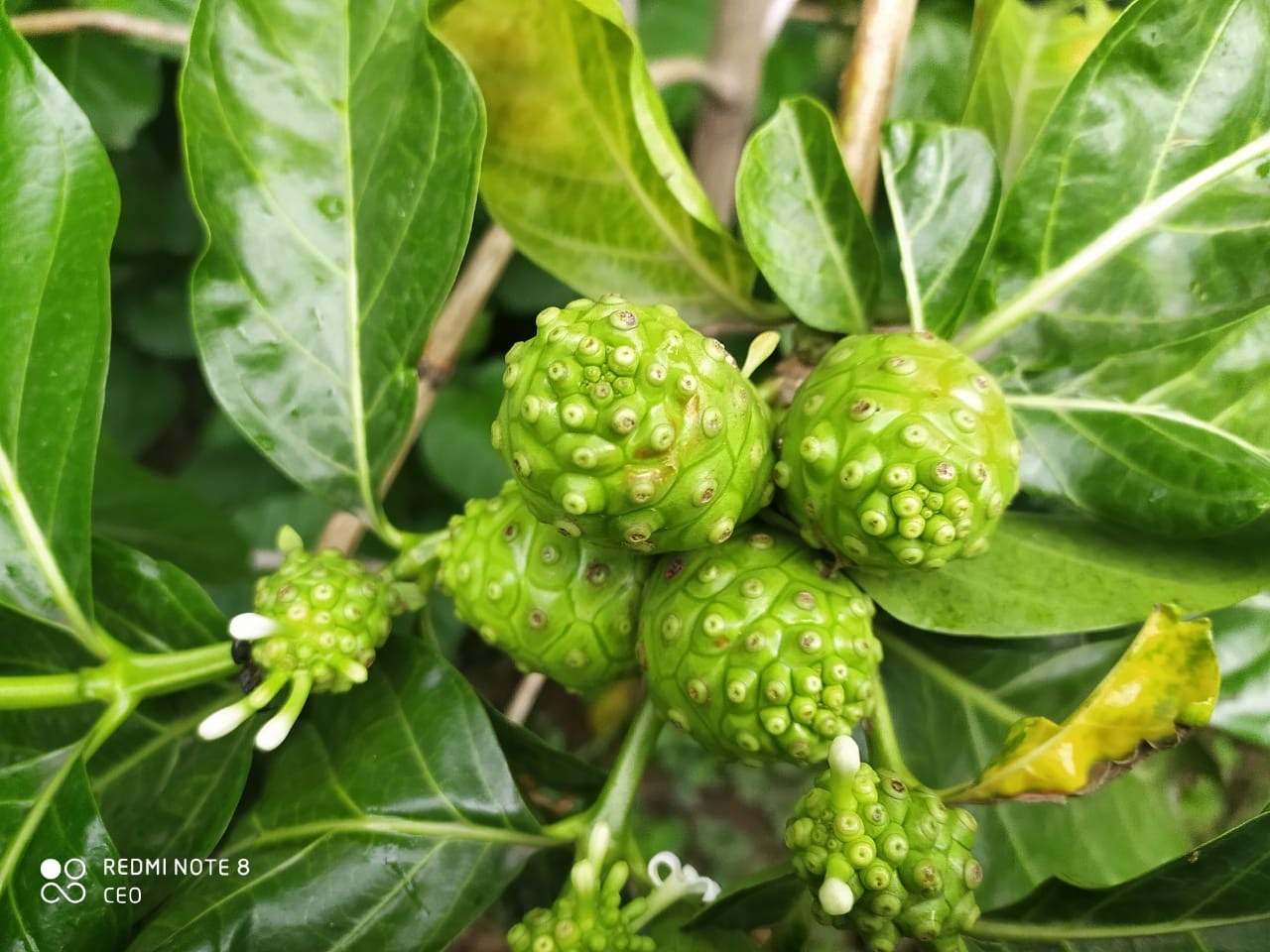Noni, also known as the Indian Mulberry, is an indigenous fruit that has been in use by ayurvedic medicine practitioners for thousands of years. The fruit is packed with several nutrients including amino acids, Vitamin C and pectin. Its juice is used to fight the growth of tumours and cancerous cells, and is also prescribed to boost immunity and hair growth among others.
However, finding this fruit and plant is rare, as it is not widely grown across the country – it’s grown only in coastal areas of Karnataka, Tamil Nadu, Kerala and Odisha, as the seeds require a tropical temperature to germinate in.
But, Prasenjeet Kumar (24), a graduate of Bsc Agriculture from Jharkhand Rai University and the founder of Jivanbodh Agrotech has managed to grow Noni in his backyard in Bokaro, Jharkhand.
“Not only did I grow the fruits, but I also extracted juice from them using traditional techniques. I was also able to germinate more seeds from the fruits I grew,” says Prasenjeet in an interview with The Better India.
Procuring Noni seeds
In 2018, during a conversation with his father, Prasenjeet was made aware of the benefits of Noni fruit. His father, an experimental farmer, told him about the tropical fruit and explained how it cannot be grown in their region.
“My father, Vivekanand, cultivates red lady papaya, night-flower jasmine, and dragon fruit. Way back in 2005, he was the first person in our region to take up spirulina (algae) cultivation. My mother, who is an ayurvedic practitioner and treats mild illnesses with traditional recipes, also vouched for its medicinal properties. She explained how Noni is considered to be a sanjeevani fruit (fruit of immortality),” says Prasenjeet.
Since he was in his final year of college, he wanted to take the help of his professors to achieve the “impossible”. First, he identified a farm in Odisha that was already growing the fruit. After speaking with them, he understood that the seed takes up to six months to germinate into a sapling owing to its hard outer covering.
During these six months, the seed remains in tropical conditions.
“When I contacted the farm, they were willing to give me a cutting or a plant, but were reluctant to give me seeds. So far, seeds have failed to give any yield in non-coastal areas. But I wanted to grow Noni from the seed so that I can raise a plant suited to Bokaro’s climatic conditions. So I convinced them and purchased 200 seeds for Rs 1,000,” says Prasenjeet.

Germinating the seeds
Once he received the seeds, he approached a professor who taught plant breeding at JRU University to get tips on how to germinate the seeds.
The professor suggested that soaking seeds in concentrated sulphuric acid for two minutes was a simple way to break the shell. However, he advised caution as sulphuric acid could burn the skin.
“I was reluctant to try this out, but my father agreed to take the risk. So we purchased some concentrated sulphuric acid and dipped the seeds and removed the outer covering. In the process, even though my father wore garden gloves and used a steel ladle to scoop the seeds, he sustained some burns. But it was thankfully not too serious,” he says, adding that he even built a low-cost polyhouse to germinate the seeds in a temperature-controlled environment.
To construct the polyhouse, he erected wooden sticks and wrapped them with a plastic sheet. The 200 seeds were individually placed in sapling containers and, within 50 days, 116 of them germinated. The others did not grow.
The saplings were transferred to the garden soil, which was enriched with organic manure and compost. Within a few months, only 16 saplings grew to a height of three feet and were healthy.

“By November 2019, after the monsoon rains, the trees were filled with Noni fruits. I harvested up to 45 kgs the first year. Since the tree produces fruits and flowers throughout the year, I can harvest at least 10 fruits from each tree every month,” says Prasenjeet.
Currently, he is not selling the fruits and is using them for personal use. His mother extracts the juice by following a traditional method and uses it to treat some patients.
“We did not decide to sell the fruits because they can spoil fast, even in cold storages. So we stored them in airtight jars and allowed them to ferment under the sun,” says Prasenjeet.

Aiming to empower other farmers
From the harvested fruits, Prasenjeet collected more seeds and tried to germinate them once again. However, this time, he did not use concentrated sulphuric acid. He followed the same polyhouse method and the seeds germinated within 45-50 days.
“I tried this with only four seeds and they were a success. I believe the seeds have adapted to the weather conditions of Bokaro and can be grown by other farmers too,” says Prasenjeet, adding that 10 seeds are usually sold for Rs 250, and one kilogram can be sold for Rs 800.
He hopes to show his achievement to Hemant Soren, the Chief Minister of Jharkhand, so that the government can empower other farmers to grow Noni and improve their livelihoods.
If you wish to know more or contact Prasenjeet, you can send him an email at jivanbodhagrotech@gmail.com
(Edited by Divya Setu)
No comments:
Post a Comment